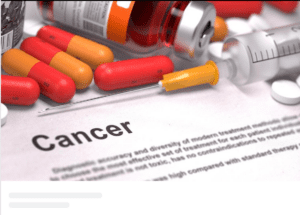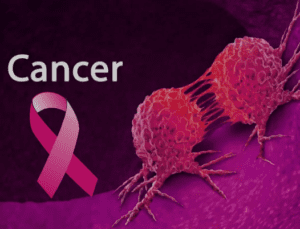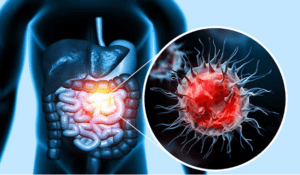Outline of the Article
I. Introduction
A. Definition of Cancer B. Significance of Finding a Cure C. Overview of Current Medicines
II. Understanding Cancer
A. Types of Cancer B. Causes and Risk Factors C. Importance of Early Detection
III. Existing Cancer Treatments
A. Surgery B. Chemotherapy C. Radiation Therapy D. Immunotherapy
IV. Challenges in Current Treatments
A. Side Effects B. High Costs C. Limited Effectiveness

V. Recent Breakthroughs in Cancer Research
A. Targeted Therapies B. Precision Medicine C. Emerging Technologies
VI. Holistic Approaches to Cancer Cure
A. Integrative Medicine B. Lifestyle Changes C. Alternative Therapies
VII. The Role of Nutrition in Cancer Prevention and Cure
A. Anti-Cancer Foods B. Dietary Guidelines for Cancer Patients
VIII. Promising Medicines in Cancer Cure
A. Immunomodulatory Drugs B. Gene Therapies C. Personalized Medicine
IX. Patient Success Stories
A. Real-life Experiences B. Impact of New Treatments
X. Future Prospects in Cancer Cure
A. ongoing Research and Clinical Trials B. Potential Breakthroughs
XI. The Importance of Early Detection
A. Screening Programs B. Awareness Campaigns
XII. The Role of Support Systems
A. Emotional Support B. Support Groups C. Caregiver’s Role
XIII. Conclusion
A. Summarizing Key Points B. Emphasizing Hope and Progress
Cancer Cure and Medicines: Unveiling Hope in the Battle Against Cancer
Cancer, a formidable adversary, has been a longstanding challenge in the realm of healthcare. In this comprehensive exploration, we will delve into the intricate world of cancer, shedding light on the progress made in finding a cure and the role of medicines in this relentless battle.
I. Introduction
A. Definition of Cancer
Cancer is a group of diseases characterized by the uncontrolled growth and spread of abnormal cells. It can occur in any part of the body, posing a significant threat to health and well-being.
B. Significance of Finding a Cure
The quest for a cancer cure holds immense significance, not just in terms of saving lives but also in enhancing the quality of life for those affected. A breakthrough in cancer treatment can bring hope to millions around the world.
C. Overview of Current Medicines
Current cancer treatments often involve a combination of surgery, chemotherapy, and radiation therapy. While these approaches have shown success, there are challenges and limitations that researchers are tirelessly working to overcome.
II. Understanding Cancer
A. Types of Cancer
Cancer manifests in various forms, each with its unique characteristics and challenges. Understanding the different types is crucial for tailoring effective treatment strategies.
B. Causes and Risk Factors
Unraveling the causes and risk factors associated with cancer is essential in both prevention and treatment. Genetics, lifestyle choices, and environmental factors play pivotal roles.
C. Importance of Early Detection
Early detection significantly improves the prognosis for cancer patients. Regular screenings and awareness campaigns are essential in catching the disease in its initial stages.
III. Existing Cancer Treatments
A. Surgery
Surgery remains a primary method for removing cancerous tumors. Advances in surgical techniques have enhanced precision and reduced recovery times.
B. Chemotherapy
Chemotherapy, though effective, often comes with severe side effects such as nausea and hair loss. Ongoing research aims to develop more targeted and tolerable chemotherapy options.
C. Radiation Therapy
Radiation therapy uses high doses of radiation to kill or damage cancer cells. Innovations in this field focus on minimizing collateral damage to healthy tissues.
D. Immunotherapy
Immunotherapy harnesses the body’s immune system to fight cancer. It shows promise in treating various cancers and is a beacon of hope in the quest for a cure.
IV. Challenges in Current Treatments
A. Side Effects
The harsh side effects of traditional cancer treatments pose a significant challenge. Researchers are exploring ways to mitigate these effects without compromising efficacy.
B. High Costs
The financial burden of cancer treatment is a pressing issue. Affordable and accessible treatments are essential for ensuring that everyone has a fair chance in their battle against cancer.
C. Limited Effectiveness
While current treatments have shown success, there’s room for improvement. Researchers are striving to enhance treatment effectiveness and broaden the spectrum of curable cancers.
V. Recent Breakthroughs in Cancer Research
A. Targeted Therapies
Targeted therapies focus on specific molecules involved in cancer growth. These therapies aim to minimize damage to healthy cells, resulting in more effective and less toxic treatments.
B. Precision Medicine
Precision medicine tailors treatment plans based on an individual’s genetic makeup, ensuring a personalized approach to cancer care.
C. Emerging Technologies
Cutting-edge technologies, such as CRISPR gene editing, are opening new avenues in cancer research. These innovations bring us closer to a future where cancer is not just treated but cured.
VI. Holistic Approaches to Cancer Cure
A. Integrative Medicine
Integrative medicine combines traditional treatments with complementary therapies like acupuncture and mindfulness. This holistic approach addresses the physical and emotional aspects of cancer care.
B. Lifestyle Changes
Adopting a healthy lifestyle can complement medical treatments. Proper nutrition, regular exercise, and stress management play integral roles in supporting the body’s fight against cancer.
C. Alternative Therapies
While controversial, some alternative therapies show promise in enhancing overall well-being and supporting conventional treatments. These include herbal supplements and mind-body practices.
VII. The Role of Nutrition in Cancer Prevention and Cure
A. Anti-Cancer Foods
Certain foods possess anti-cancer properties. Incorporating these into the diet can contribute to prevention and support the body during cancer treatment.
B. Dietary Guidelines for Cancer Patients
Tailoring diets to meet the specific nutritional needs of cancer patients is vital for supporting recovery and minimizing treatment-related side effects.
VIII. Promising Medicines in Cancer Cure
A. Immunomodulatory Drugs
Immunomodulatory drugs stimulate the immune system to recognize and destroy cancer cells. These drugs hold promise in treating a variety of cancers.
B. Gene Therapies
Gene therapies involve altering a patient’s genes to treat or prevent disease. This groundbreaking approach is showing encouraging results in certain types of cancer.
C. Personalized Medicine
The era of personalized medicine is dawning, where treatments are tailored to an individual’s unique genetic profile. This approach maximizes treatment efficacy while minimizing side effects.
IX. Patient Success Stories
A. Real-life Experiences
Hearing the stories of individuals who have triumphed over cancer provides inspiration and instills hope. These stories highlight the impact of advancements in cancer research and treatment.
B. Impact of New Treatments
Examining the tangible impact of new treatments on patients’ lives reinforces the importance of continued research and innovation in the field of oncology.
X. Future Prospects in Cancer Cure
A. Ongoing Research and Clinical Trials
Ongoing research and clinical trials play a pivotal role in shaping the future of cancer treatment. The collaboration between scientists, clinicians, and patients is crucial in advancing our understanding and capabilities.
B. Potential Breakthroughs
The anticipation of potential breakthroughs keeps the flame of hope alive. From groundbreaking technologies to innovative therapies, the future holds promise for a world where cancer is not a sentence but a treatable condition.
XI. The Importance of Early Detection
A. Screening Programs
Supporting and participating in screening programs can detect cancer at its earliest, most treatable stages. Community engagement is vital in making these programs accessible to all.
B. Awareness Campaigns
Raising awareness about the importance of early detection fosters a culture of proactive healthcare. Knowledge empowers individuals to take charge of their health and seek timely screenings.
XII. The Role of Support Systems
A. Emotional Support
The emotional toll of a cancer diagnosis is significant. Support systems, including family, friends, and counseling services, play a crucial role in helping individuals navigate the emotional challenges.
B. Support Groups
Joining support groups provides a sense of community and understanding. Sharing experiences with others facing similar challenges can be therapeutic and empowering.
C. Caregiver’s Role
Acknowledging the vital role of caregivers in the cancer journey is essential. Their support, both practical and emotional, contributes significantly to the overall well-being of patients.
XIII. Conclusion
A. Summarizing Key Points
In conclusion, the landscape of cancer cure and medicines is evolving at an unprecedented pace. While challenges persist, the progress made in recent years offers hope and optimism for a future where cancer is not only treatable but curable.
B. Emphasizing Hope and Progress
As we navigate the complexities of cancer research and treatment, it’s crucial to emphasize the hope and progress that each discovery brings. The collective efforts of scientists, healthcare professionals, and the community contribute to a brighter tomorrow.
FAQs – Unveiling Answers to Common Questions
- Q: Are there natural remedies that can complement cancer treatment? A: Yes, certain natural remedies and lifestyle changes can complement traditional cancer treatments. It’s essential to discuss these with healthcare professionals.
- Q: How can individuals support cancer research efforts? A: Individuals can support cancer research by participating in clinical trials, raising awareness, and contributing to reputable cancer charities.
- Q: What role does nutrition play in cancer prevention? A: Nutrition plays a crucial role in cancer prevention by providing essential nutrients that support the body’s immune system and overall health.
- Q: Are there breakthroughs that could make cancer treatments more affordable? A: Ongoing research focuses on developing more cost-effective cancer treatments to alleviate the financial burden on patients.
- Q: How can caregivers cope with the emotional challenges of supporting a cancer patient? A: Caregivers can cope with emotional challenges by seeking support from friends, family, and professional counseling. Taking care of their own well-being is essential.



